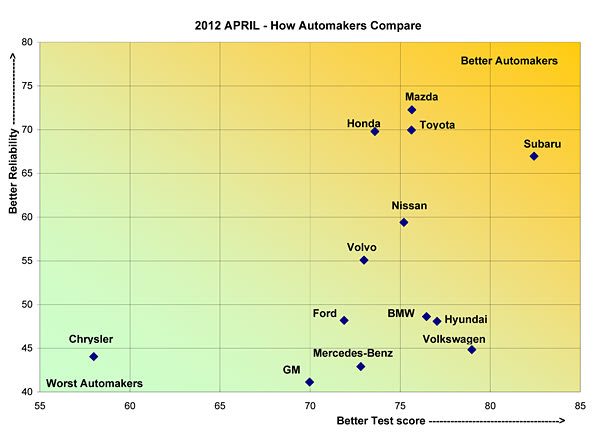packrat44
Thinks s/he gets paid by the post
If basing an automobile purchase on anticipated future repair costs it might be wise to consider a base level of one of the biggest selling models. The more bells and whistles on the vehicle the better the chance of higher future repair bills. A model with hundreds of thousands on the road will mean a lot of mechanics will have experience working on your model. After-market parts manufacturers will be able to mass produce common repair parts such as brake rotors, calipers, struts, etc. for your model for many years to come. The more they can make the less expensive the parts will be. Case in point, compare after-market prices for VW parts compared to Honda parts here in USA.
+1 Consumer Reports might be good for choosing a particular used car and what year has had problems, but it can not predict the future. I try to stay with brands that had a good overall history and away from leading edge technology and high cost options (HID, etc). After 19.5 years of service I replaced DW 1992 Honda Accord with a new Honda Accord. Other than the usual oil changes; tires; mufflers; brake pads, the only expense has been a timing belt; rebuilt distributor for about $90; and a rebuilt axle for $45 (CV joint boot cracked after 19 years of use). The 1992 still runs and looks very good but DW thought she deserved a new car after about 20 years. Okay, she is the spendthrift in the family.




